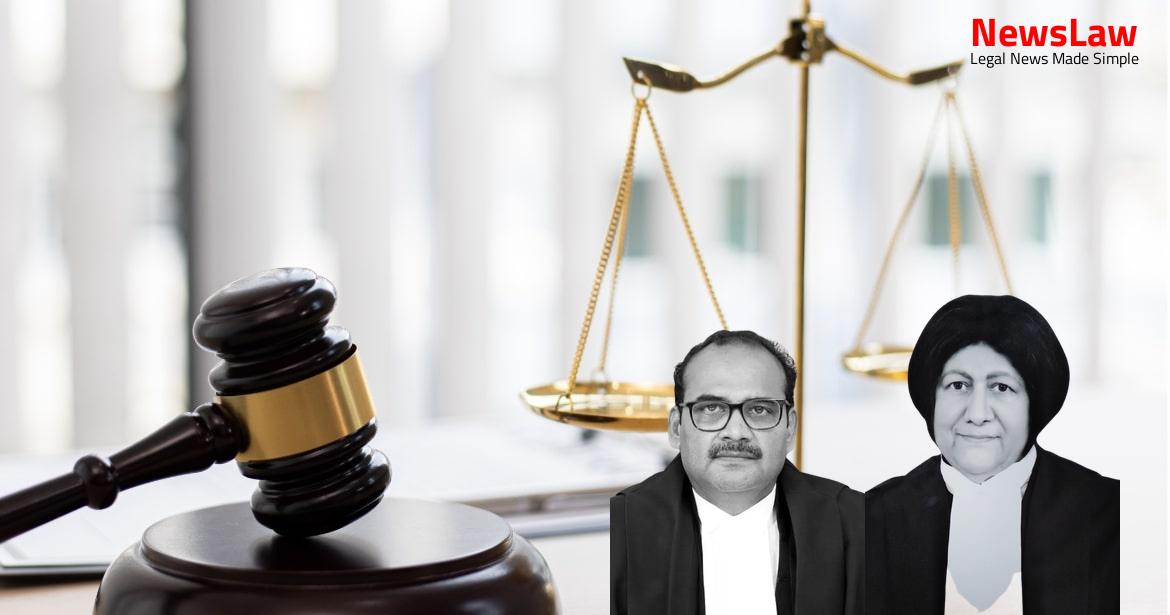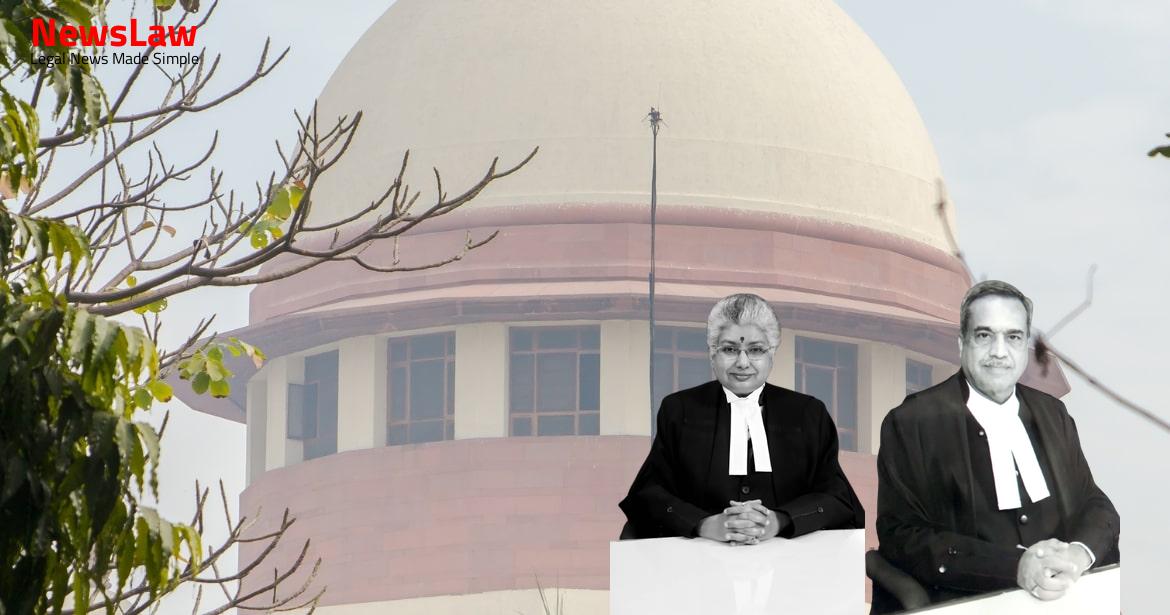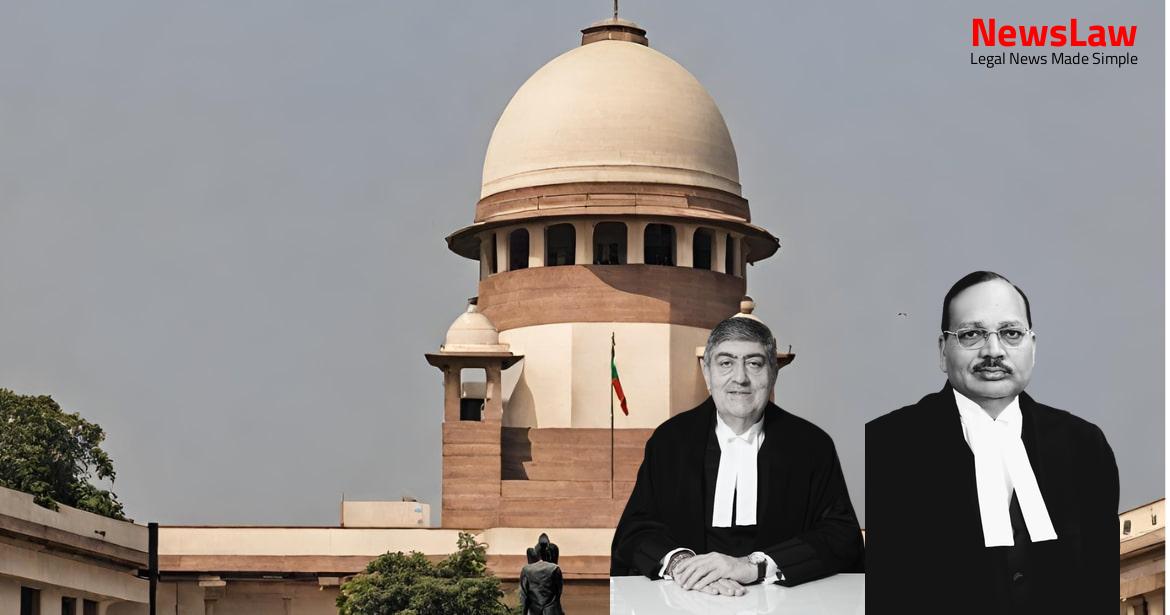Explore the in-depth legal analysis by the court in a complex adoption dispute case. The focus lies on the determination of substantial questions of law, crucial for impacting the rights of the parties involved. Understanding the nuances of legal interpretations and their significance in resolving disputes forms the cornerstone of this case summary.
Facts
- Original Plaintiff Chandrabhan filed Regular Civil Appeal No. 361 of 1984 in the Court of the Additional District Judge, Beed, Maharashtra.
- In 1979, Original Defendant No.1, Yamunabai, wife of Baliram, purportedly gifted the suit properties to Original Defendant No.2, Champabai, wife of the Original Plaintiff.
- The Respondents examined Champabai and others to establish that the Original Plaintiff had not been legally or validly adopted by Baliram.
- Original Plaintiff examined himself and five other witnesses, including the priest who conducted the adoption rituals, to prove he had been adopted by Baliram.
- The High Court found no substantial questions of law in the case and considered various aspects of the adoption and property ownership disputes.
- First Appellate Court re-analysed evidence from 1950 adoption in 1984
- Findings of First Appellate Court based on evidence from Trivenibai & priest
- Trial Court dismissed Civil Suit No. 198 of 1979 on July 31, 1984
- First Appellate Court allowed Civil Appeal No. 361 of 1984 on Nov 10, 1994
- First Appellate Court ruled Original Plaintiff was adopted by Baliram
- Respondent Nos. 1 to 4 filed Second Appeal No. 45 of 1995 in High Court
- High Court admitted Second Appeal, heard at length, and allowed on Jan 11, 2016
- Trial Court found essential requisites of adoption not established
- Trial Court rejected Plaintiff’s contention due to contradictions in evidence
Also Read: Legal Analysis of Appeal Provisions in Admiralty and Commercial Court Cases
Analysis
- An inference of fact from the recitals or contents of a document is a question of fact.
- The proper test for determining whether a question of law raised in the case is substantial is if it is of general public importance or if it directly and substantially affects the rights of the parties.
- If the question is settled by the highest court or the general principles to be applied in determining the question are well settled, then it may not be considered a substantial question of law.
- To be ‘substantial’, a question of law must be debatable, not previously settled by law or binding precedent, and must have a material bearing on the decision of the case.
- Exceptions where the courts below have ignored material evidence or acted on no evidence.
- A question of law must emerge from the sustainable findings of fact, be necessary for a just decision, and have a foundation in the pleadings.
- The definition of ‘decision based on no evidence’ includes cases where evidence as a whole cannot reasonably support the finding.
- The High Court will generally not interfere with findings of facts by lower courts.
- A substantial question of law affects the rights of parties, is not covered by law or precedents, and is debatable.
- The High Court should satisfy that the case involves a substantial question of law, not just any question of law.
- The right of appeal is not automatic but conferred by statute.
- Construction of a document involving legal principles is also a question of law.
- High Court’s questions did not meet the tests for substantial questions of law.
- No question of law, let alone a substantial question of law, was involved in the Second Appeal.
Also Read: Legal Clarity on Post-Sale Charges
Decision
- The appeal has been allowed.
- The impugned judgment and order have been set aside.
- The judgment and order/decree of the First Appellate Court in Regular Civil Appeal No.361 of 1984 have been restored.
Case Title: 1. CHANDRABHAN (DECEASED) THROUGH LRS Vs. SARASWATI (2022 INSC 997)
Case Number: C.A. No.-006857-006857 / 2022



